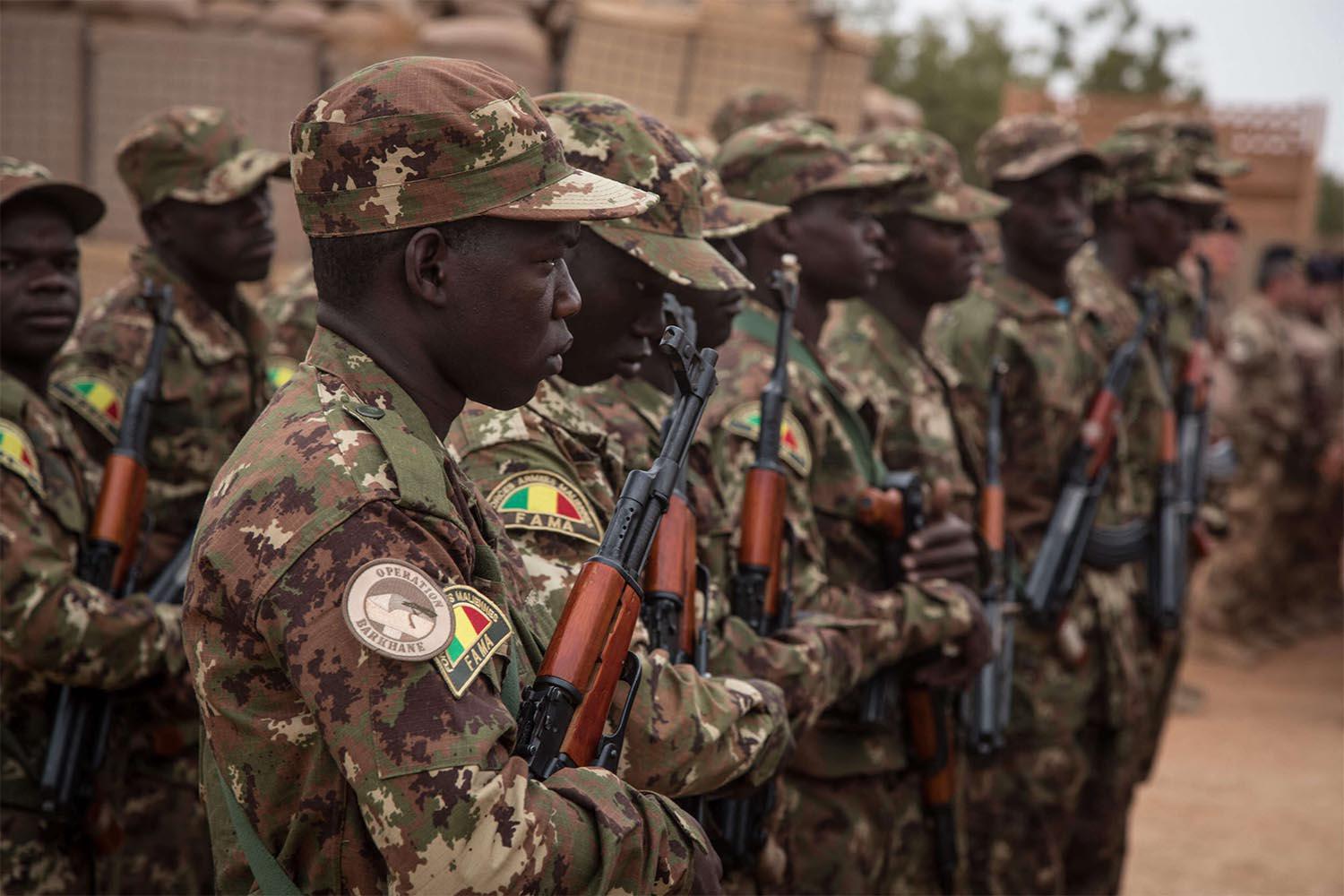Mali’s government has denied the presence of Russian mercenaries from the Wagner group in the West African country.
This comes after a group of 15 Western powers have claimed that Russian mercenaries working for the controversial Wagner group had begun to deploy in Mali.
The government “gives a formal denial to these baseless allegations” of “an alleged deployment of elements from a private security company in Mali,” said an official statement released late Friday.
Bamako was “only involved in a state-to-state partnership with the Russian Federation, its historical partner”, said the statement signed by government spokesman Colonel Abdoulaye Maiga.
Mali’s government, it emphasized, “demands that proof be brought to it by independent sources,” adding that “Russian trainers” were in Mali as part of strengthening the operational capacity of the national defense and security forces.
The Western governments alleged on Thursday that Moscow had provided material backing for the mercenaries. “We are aware of the involvement of the Russian Federation government in providing material support to the deployment of the Wagner group in Mali and call on Russia to revert to a responsible and constructive behavior in the region.”
The governments purportedly involved in the fight against insurgency in the former French colony – including former colonial powers such as Britain, Germany, France, and Canada – also declared that they “firmly condemn the deployment of mercenary troops on Malian territory”.
READ ALSO: Visitors return to Afghan national museum with Taliban blessing
They further vowed that despite the alleged deployment of the Russian militia force, they planned to remain engaged in Mali, claiming that “we will not give up our efforts to address the needs of the Malian population.”
Moreover, an unidentified French government source said that “intense activity” had been noted by occupying French troops as the deployment of the Russian force went ahead.
“We are seeing repeated air rotations with military transport planes belonging to the Russian army and installations at Bamako airport to allow the arrival of a significant number of mercenaries,” AFP quoted the source as saying.
French President Emmanuel Macron was due to raise concerns about the Wagner deployment on a planned visit to Mali this week to meet the country’s transitional leader Colonel Assimi Gotta for the first time, but the trip was canceled due to the surging coronavirus pandemic.
The development came as French troops left a key military base in the city of Timbuktu in northern Mali earlier this month, handing it over to the Malian army nearly a decade after a military intervention in the West African country.
At a December 15 ceremony, the French flag was lowered and the Malian flag hoisted in its place at the base, where a force of about 150 soldiers had remained after France decided to scale down its military presence in the country earlier this year.
The escalating tensions in Mali emerged as anti-French sentiment has become prevalent among Malians, who blame Paris for failing to contain the surging violence in the country and pursuing a hidden agenda. Back in October, hundreds of Malian protesters took to the streets in the capital, Bamako, to demonstrate against the French military presence in the West African country.
The French force, operating in Mali, Chad, Niger, Burkina Faso, and Mauritania, currently has 5,000 troops in the region. The deployment is due to be reduced to about 3,000 troops by next year.
This is while the former colonial power continues to control countries in more than 12 territories and treats their people as second-class citizens following decades of slavery. Anti-French sentiments in former colonies have been a source of headache for Macron, the country’s first leader born after the colonial era.
The Caribbean territories of Guadeloupe and Martinique have recently been wracked by rioting and strikes that reflect long-running frustrations over inequality with the French mainland.
Late last month, the Nigerian government announced that two people were killed and 18 others wounded in clashes with French troops after a military convoy heading to neighboring Mali was blocked by protesters angry at the failure of French forces to counter the threat of terrorism in the region.













